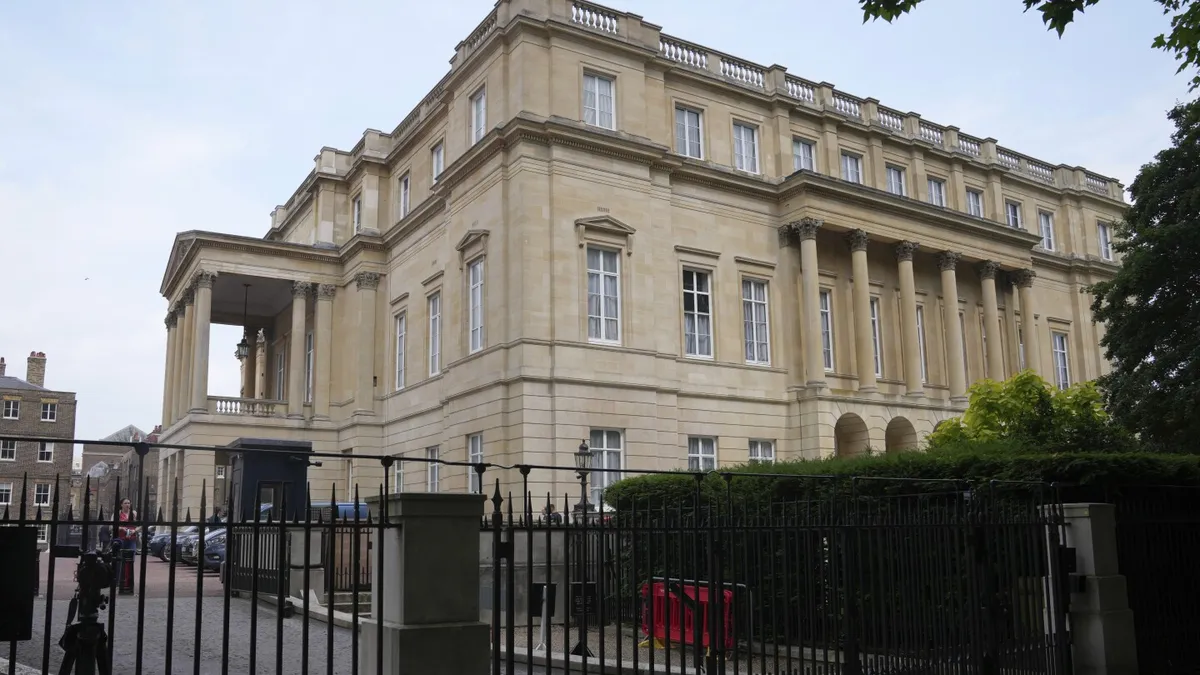
On Monday, high-level delegations from the United States and China convened in London, aiming to reinforce a fragile truce in the ongoing trade dispute that has significantly impacted the global economy. The meeting took place at Lancaster House, an exquisite 200-year-old mansion situated near Buckingham Palace. Leading the Chinese delegation was Vice Premier He Lifeng, who engaged in discussions with key U.S. officials, including Commerce Secretary Howard Lutnick, Treasury Secretary Scott Bessent, and Trade Representative Jamieson Greer. Notably, Wang Wentao, China’s commerce minister, was also in attendance.
This crucial meeting follows recent negotiations held in Geneva last month, which provided a temporary pause in the escalating trade war. On May 12, both nations announced a significant development: a 90-day suspension of the majority of the tariffs exceeding 100% that they had imposed on one another. This suspension aimed to alleviate growing concerns of a potential recession triggered by the trade conflict, as the U.S. and China stand as the world’s largest and second-largest economies.
Recent data from China reveals a worrying trend, with exports to the United States plummeting by 35% in May compared to the previous year. Since the Geneva discussions, tensions have escalated, with the U.S. and China exchanging sharp criticisms over crucial issues such as advanced semiconductors essential for artificial intelligence, visa policies for Chinese students in American universities, and rare earth minerals critical for various industries, including automotive manufacturing.
In an effort to mend relations, President Donald Trump engaged in an extensive phone conversation with Chinese leader Xi Jinping last Thursday. Following their discussion, Trump took to social media to announce the resumption of trade talks in London. It is anticipated that rare earths will be a focal point of these negotiations, particularly after the Chinese government mandated that producers obtain licenses to export seven key rare earth elements starting in April. This regulation led to widespread shortages, causing global automakers to express concern over potential production halts.
Beijing has indicated its commitment to addressing the industry’s concerns, which have been voiced not only by U.S. companies but also by European firms. U.S. economic adviser Kevin Hassett shared his expectations for a brief meeting characterized by “a big, strong handshake” concerning rare earths. The U.K. government has facilitated the venue and logistics for these pivotal talks but has clarified that it is not directly involved in the discussions. However, British Treasury chief Rachel Reeves met with both Bessent and He on Sunday, and U.K. Business Secretary Jonathan Reynolds was scheduled to meet with Wang.
In a statement, the British government expressed its support for the ongoing talks, emphasizing its commitment to free trade. “We are a nation that champions free trade and have always been clear that a trade war is in nobody’s interests, so we welcome these talks,” the statement read. The outcome of these discussions could play a crucial role in shaping the future of international trade relations, particularly between the two economic giants.
As the talks progress, stakeholders worldwide will be closely monitoring the developments that could either stabilize or further complicate the intricate web of global trade.